News & Events
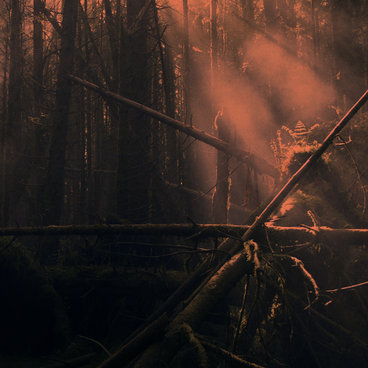
On June 5th, Subtext presents Kistvaen – the fourth solo studio LP by Roly Porter – which takes its name from a type of granite tomb found predominantly in Dartmoor, southwestern England. Scattered across the moorlands, the kistvaens were often found covered in a mound of earth and stone. They housed dead bodies, allowing them to lie facing the sun.
With Kistvaen, Porter speculates on the burial site as a mirror, or a gate in time. Excavating stories and images of ancient burial rituals, the record teases out similarities in emotional and social rituals between the Neolithic period and today. While a myriad of social, cultural and technological factors drastically differentiate our contemporary period and the end of the Stone Age, certain affinities may still be found in experiences of death across eras.
Venturing across histories, Porter soundtracks a moorland burial unanchored in time. Raw, unprocessed vocals are folded into field recordings made in the area, wordlessly relaying tableaus of burial rituals in Neolithic Dartmoor. Kistvaen features three singular vocalists: Mary-Anne Roberts – from medieval Welsh music duo Bragod, Ellen Southern – of Bristol's Dead Space Chamber Music group, and Phil Owen – a singer and researcher in vocal traditions.
Kistvaen contrasts primordial motifs with that of the 21st-century life in designed environments and an evolving virtual existence. The music blurs boundaries between field recording, folk instrumentation and digital processing, which although beatless creates a profound effect using dark ambiance, deep electronics, and immersive sound design. This is otherworldly sonic necromancy, where long dormant spirits are evoked, summoning an extremely heavy presence.
The pieces that comprise Kistvaen were developed for an AV performance of the same name with visual artist MFO, which has appeared at Unsound, Berlin Atonal, and Sonic Acts. The long-player was recorded during various rehearsals/performances and also at BinkBonk studios in Bristol.
More information can be found here.
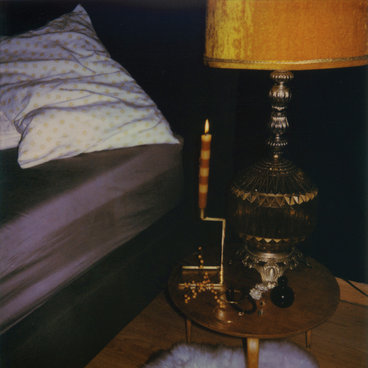
For an artist whose career is almost entirely improvisational, TALsounds has refined a stunning style of music that sounds as meticulous as it does surprising. Since picking the moniker nine years ago, Natalie Chami has been flitting between experimental electronica, mood-driven minimalism, and classically trained choral singing as a solo artist in Chicago. On her fifth album, Acquiesce, she dives inward without constraints and invites the listener to do the same, to lose track of time, and to let emotion dictate what happens next.
Chami is a DIY staple within Chicago’s electronic scene as a solo artist, a member of Good Willsmith, and a frequent collaborator of Brett Naucke, Matchess, and others. Over the years, she's honed her skills onstage, particularly her ability to block out what’s happening around her to instead focus on her subconscious, letting it guide where she steers each song. Whether she’s opening for Merzbow or Mary Lattimore, Tim Hecker or Tortoise, Mdou Moctar or Kaitlyn Aurelia Smith, Chami is adept at fitting the unique vibe of each concert despite never actually deviating from her music’s core sound — a prime example of her percipience and sense of control.
Recorded at home as improvised sessions, Acquiesce is a fluid extrapolation of her thoughts, worries, and stresses, later trimmed down and reformatted into songs. Chami treats her voice like an instrument that breathes calm into interwoven electronic parts, often leaning into vowels instead of phrases, particularly the tall, forward sound of "i" words like "time," "find," and "decide." Performed entirely by Chami and produced by Cooper Crain (Bitchin' Bajas, Cave), Acquiesce is full of entrancing moments, be it the trumpet-like call in "Muted Decision," the typewriter beat of "Instance," the flickering vocals in "Else," or the alien-like glitching of "Dynasty." It picks up from the stirring sounds of her 2017 record Love Sick—named one of the best albums of the decade by Chicago Reader—and closes its eyes, as if in meditation, to reflect on what’s next.
"For me, it’s not about recording; it's about playing,” says Chami. "It's therapeutic, but sometimes I feel more weighted after I finish. It's like playing gets me to confront whatever I'm thinking about, even if I don't always find an answer."
The clearest example of improvisational healing in real time is "No Rise," an overlap of aquatic keys and shimmering synth trills. "No rise / there is no rise, I say / I'm breathing by my strength," she sings, repeating the phrase as if slowly counting down. "Breath is what gets you through anxiety attacks. Even when you feel your weakest, you’re able to find some control," explains Chami. "It's weird to read the lyrics afterwards and see what I said, because when I'm in the moment, I don't always realize what I need to say until after I've said it."
TALsounds made a name for herself within Chicago’s DIY electronic scene for her innate sense of feeling, flow, and fascination. With Acquiesce, she demonstrates not just how hypnotic her music is or how stirring her vocal range is, but how these two combine naturally for her as an improvisational artist — and she's poised to break out nationally because of that.
Acquiesce will be released on vinyl and digital formats on May 22, via NNA Tapes.

Creating what Iggy Pop described to Jim Jarmusch as "symphonies for people that don't have a lot of time," Sarah Lipstate has emerged as an innovative and defining voice in the world of music under the name Noveller. Wielding a guitar as her main instrument, Lipstate has pioneered a transcendent approach to composition through her mastery and integration of effects pedals and technology. Forming unexpected sonic routes, her songs are vivid and cinematic, telling intricate tales with each tone and swell.
Raised on a strict piano technique, the discovery of the guitar late in her teens allowed for an escape from formalism and unlocked the hidden realms of her creativity. Taking an anti-theoretical approach, suddenly music was no longer a series of notes, rests, and time signatures, but a means of intuitive expression. Her deepened interest in experimental music, fueled by the discovery of the bold noise of Sonic Youth, the epic scope of Glenn Branca, the delicate formularies of Brian Eno and the no wave discordance of Teenage Jesus & The Jerks, only furthered to inspire.
A yearning to explore and feed that creativity took her from Louisiana to Austin, then Brooklyn to LA. Arrow is her first album since the move to the edge of the canyons of Los Angeles, and you can hear the destabilizing effect this had on her in the music. Out of her comfort zone in a new city, with a rolling expanse in front of her and an urban sprawl over her shoulder, Lipstate built her new album as she contemplated this change in her life.
The resulting record feels as if it is filled with dreamscapes and contemplation intersecting with tension and drama, a journey that plays out over its dynamic sequence. Tracks like "Effektology" open up like a vivid view of the night sky, before the darkness settles in and envelopes you, finally quieting your racing mind and bringing about much needed slumber. "Canyons" pings about and stings at the mountainside with its syncopated melodic echoes. "Pre-fabled" walks you straight into the crashing ocean waves like a desperate cleansing. A mournful "Remainder" closes the proceedings, steadying itself for what the future might hold.
With her ability to add such unique sounds and textures, Lipstate has been sought out as a frequent collaborator, recently writing songs with Iggy Pop and performing as a member of his band on his worldwide tour. Past partners in crime have ranged from JG Thirlwell to Lee Ranaldo and she has performed as part of Rhys Chatham's Guitar Army, Nick Zinner's "41 Strings," Ben Frost's "Music for 6 Guitars," and Glenn Branca;s 100 guitar ensemble. She has also toured in support of big fans in St. Vincent, Wire, U.S. Girls, The Jesus Lizard and Helium.
Those prized abilities have also led her to her being a leader in the conversation around the gear that has unlocked the full range of her abilities. As she began posting videos of her explorations to social media, a dedicated and inquisitive audience emerged and continues to grow, as she appeared in magazines and documentaries. With Arrow, Lipstate has emerged with an album that is sure to delight and challenge all of her followers, as that fanbase widens further.
More information can be found here.

To Kiss Earth Goodbye, Teleplasmiste's second full album, sees their sound-vision expanding and deepening, phantasmally and fantastically, opening onto thrilling new vistas of euphoria. The music is informed by a deep awareness and respect for prior esoteric traditions and counterculture currents, but forges a new and fertile synthesis very much its own.
The mesmerizing cover art is by spirit painter and medium Ethel Le Rossignol, whose 1933 book of spiritualist teachings lends its name to the album’s second track: "A Goodly Company." Another composition, "An Unexpected Visit," incorporates a previously unheard trance recording of occultist Alex Sanders (aka the UK's "King of the Witches"), made by Sanders himself in the 1980s.
More information can be found here.
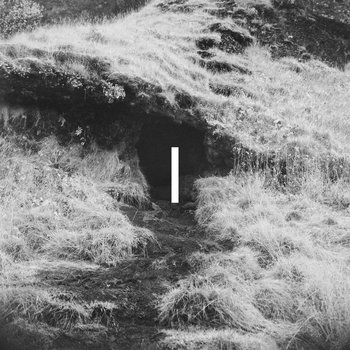
Through A Vulnerable Occur is the result of a dialog between the photographer Sophie Gabrielle and the musician Seabuckthorn, initiated by IIKKI, between June 2019 and February 2020.
The complete project works in two physical imprints:
a book and a disc (vinyl/cd)
it should be experienced in different manners :
the book watched alone
the disc listened to alone
the book and the disc watched and listened to together.
___________________________________________________
Seabuckthorn is an alias used for the solo work of English acoustic guitarist & multi-instrumentalist Andy Cartwright since 2009.
He uses finger picking & bowing techniques combined with various open tunings to form a mixture of approaches, often with layered accompaniments. Generally the songs lean towards to the experimental genre, whilst on the edge of the ambient and folk.
Through A Vulnerable Occur is his 9th releases.
____________________________
Sophie Gabrielle is a Melbourne based contemporary photographer and curator working in both analog and digital mediums. Graduating from Photography Studies College, Melbourne in 2015, she has been one of the Lensculture Art Awards finalist in 2018, then Foam Talent winner in 2019. Her work has been exhibited in Australia, Malaysia, New York and the UK. Through her fine art practice, Sophie has channeled her interest in mythology, spiritualism and psychology to create poetic works that reflect our sense of self, place and the ambiguity of memory. Her works are an exploration into the world of the unseen, through optics, chemical interactions and the investigative processes used to photograph something invisible to the naked eye.
More information can be found here.

Following 2018's acclaimed collaboration with Simon Fisher Turner, Care, Swedish sound artist Klara Lewis returns with "Ingrid", her third solo release for Editions Mego.
Ingrid is a departure from Lewis's previous solo outings, drifting from the eerie rhythmic variations of Too and Ett and moving assuredly into long-form experimentation. The piece retains those records' pulsing core and builds on a single cello loop that is steadily enveloped by a surge of distortion. It's almost like a voice or chant, shifting pointedly from a whisper into a scream before singing peacefully into the light.
At times, Ingrid reminds of William Basinski's looping melancholy or Steve Reich's controlled and innovative phase experiments, while at others, it recalls the chaotic Scandinavian physicality of black metal. Yet the entire composition is anchored in Klara Lewis's distinct emotional world. By dissolving familiar and beautiful strings in baths of noise, Lewis allows something violent but tender to grow in its place. In a society struck through by cynicism, Ingrid is a cathartic listening experience and a beacon of hope.
More information can be found here.

**The seventh installment in Geographic North’s long-running Sketch for Winter series, which highlights compositions intentionally crafted for the colder season.**
Louise Bock is the nom de guerre of Taralie Peterson, a venerable veteran of the American avant-garde. Whether solo or together with Ka Baird as Spires that in the Sunset Rise, Peterson has spent nearly two decades exploring the outermost limits of ecstatic, free jazz-influenced improvisation. The sonic range of Peterson's opulent oeuvre is matched only by the variety of instruments she employed, including but not limited to voice, saxophone, clarinet, guitar, banjo, lap harps, mbira, spike fiddle, and so on. Now, under the sobriquet Louise Bock and focusing solely on the cello, Peterson returns with Abyss: For Cello, a profound work of considered minimalism composed during and intended for the dead of winter.
Deciding to focus entirely on the cello, Peterson rid herself of any other self-imposed rules, analysis, and judgment that ultimately unlocked unforeseen revelations. Opener "Horologic" offers a sustained seethe of heaving, serrated textures. "Jute" offers a dynamic run of striated tones that slowly dissolve into a pool of peaceful resolve. "Actinic Ray" brings a kaleidoscopic blur that offsets heaving lurches of chordal sound with almost acrobatic flecks of melody. "Oolite," featuring Kendra Amalie on guitar, is an engrossingly unsettling piece of auditory hysteria, balancing a fascinating and fine line between allure and aversion. Closing track "Prithee" prolongs a potent interplay of deep, dense resonance and exquisitely elegant static.
Through these ruminations, Peterson's cello exposes immense beauty, sorrow, and joy that is altogether deeply hypnotic and discreetly haunting.
More information can be found here.
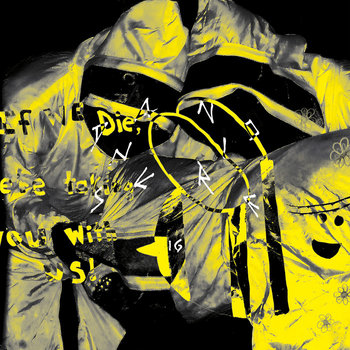
Hidden in plain sight, grinning through worry, living in insecurity – modern society has returned to a day-by-day race for survival. To be vulnerable is the new normal; afraid, a bare minimum. Something was bound to emerge from the quiet throngs of the new precariat, and Racine is such a voice, setting to music those modern lives defined by uncertainty.
Quelque Chose Tombe ("Something Falls") is a set of compositions that confronts demons both inner and outer head-on. Created during a period of necessary unemployment somewhere in Montreal – caring for one's health can take precedence over work – the music is both a grotesque dance of the goblins and the gentle opiatic breath of the protectors. It's a harrowing reflection of the prevalent vampiric hypochondria forcing a generation into fatigue.
The sounds crawling out of Racine speak with their own internal logic. Snippets of fractured tunes creak through perturbed post-digital soundscapes, blurred and fragmented along the way into haunting amorphous instrumentals. The two-part title track is multi-part sonic maze where raven-like pitch-bent notes gather, a broken rave theme punctures its way through bass fog, and silence clefts the music in two, ushering in a coda of heartbroken ambience. As the album's suite progresses, Racine shepherds mutant melodic themes in and out of earshot, like clear thoughts bringing temporary order to a state of emotional panic and withdrawal. A host of other sounds too – voices and birdsong, cybernetically deformed – populate Racine's scarred productions.
Emerging from Quelque Chose Tombe’s constant darkness however, is a latent sense of hope. Racine is turning modern vulnerability into a strength, creating a singular aesthetic to reflect and confront an uncomfortable present.
More information can be found here.
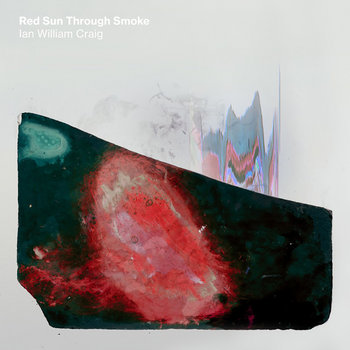
Eighteen months on from his last solo release, Vancouver-based singer/composer Ian William Craig returns with a brilliant and powerfully emotive new album. His first for a long while to be centered around the piano - and also one of his most pared back - the record was made through an intense period of personal loss and environmental catastrophe.
Red Sun Through Smoke was recorded over two cataclysmic weeks in August 2018 in Kelowna, whilst the city was encircled by the forest fires which, under a warming climate, now regularly rage through British Columbia in summertime. With smoke engulfing the landscape, Ian describes how "the houses across the road couldn’t be seen save for a brief white on white outline. The sun was dull red on grey. The air was becoming steadily dangerous. There was nowhere to go that was not this way; all the space filled up with worry." Having committed to recording that August, Ian sought a supposedly calmer retreat in which to work. Carrying his gear across the province to set up a temporary studio space, the album was recorded from start to finish in the living room of a small house owned by his grandfather who was now residing in a care facility across the street, having been afflicted with dementia for the past decade. The morning after Ian arrived, his parents unexpectedly phoned to say that they would be flying in too, as Grampa had been moved into palliative care, his lungs filled with fluid as a result of the smoke. Despite this shocking turn of events, Ian's parents convinced him to keep recording, with the process ultimately becoming a document of the difficult place in which they found themselves.
One benefit of recording at his grandad's lay in gaining access to his piano, which became the record's anchoring point. Beyond this, the only other instrumentation consisted of Ian’s voice, a shortwave radio set, several modified tape decks and a bunch of tape loops. Ian notes how events helped force the shape of the record and a tendency toward a less layered, more spartan expression. "Everything felt raw, I didn't want there to be anywhere to hide in this record. My parents and I were cramped together in a small house while my grandfather slowly died across the street in a world filled with smoke, after all. So, in this record, more than most, there exist a great many things straight to tape without any effects because there really was no space."
Forged in trauma and an intense, bewildering slew of mixed emotions, Ian William Craig has created an album of incredible beauty, sadness and depth. Red Sun Through Smoke is a profoundly moving album, a standout record in a prolific body of work that shows no sign of faltering.
More information can be found here.

Second volume in a trilogy exploring the teenage tape experimentation of Warren Defever aka His Name Is Alive. Echo-drenched guitar instrumentals, field recordings and gorgeous ambient tones pulsate through the analogue murk, also taking in dalliances with greyscale industrial drone, musique concrète and even a burst of 4-track noise pop reminiscent of the early work of The Jesus And Mary Chain.
More information can be found here.

